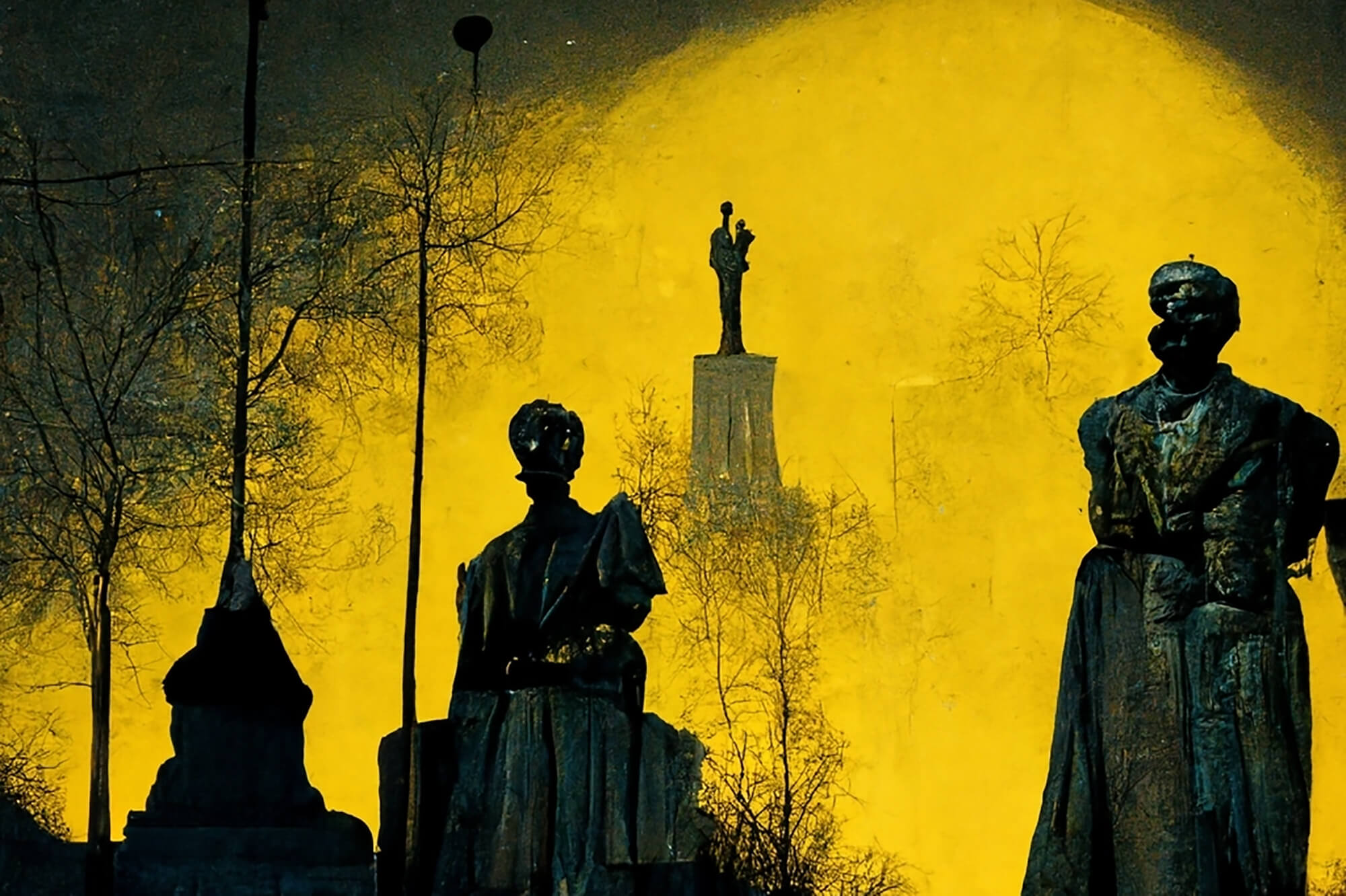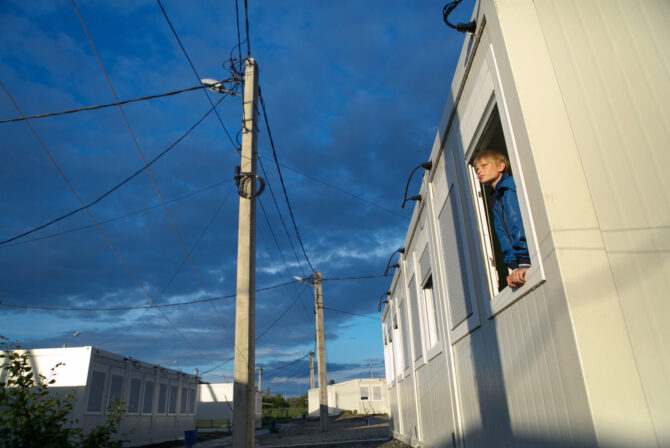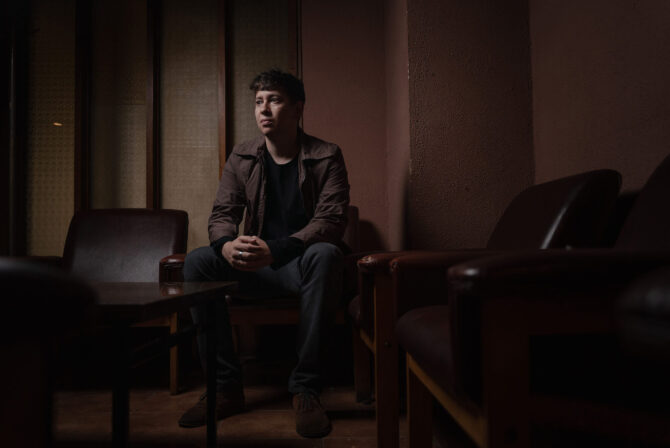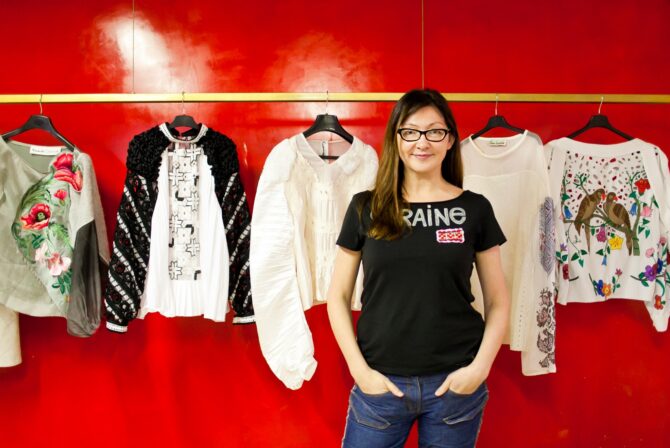The Ukrainians Media is an award-winning independent media company focusing on high-quality, long-form, and visual journalism. Our mission is to foster positive social changes in Ukraine.
This story was created thanks to the support of our readers. Please join The Ukrainians Community on Patreon and help us publish more important and interesting stories.
The war forced us to immediately realize that victory requires both weapons and patriotism and that there are fundamental values we can never compromise. The need to renounce toxic Russian culture seems to have caused some confusion in those predominantly Russian-speaking regions now suffering the most from the invaders’ crimes. After all, decommunization removed only the upper layer, leaving almost intact the imperial heritage we must now renounce because our very survival and the existence of the Ukrainian nation and state depend on it.
Just a few weeks before the invasion, in Kharkiv, they would have never agreed to rename Pushkin and Zhukov streets, asserting that it was another part of their cultural heritage. In Odesa, nobody minded the empress, who was called a “she-devil” in one of the folk songs, and who ruined the “land of joy” or, citing Shevchenko, “finished off” the Ukrainian statehood. And in Kyiv, the Bulgakov Museum was not far from the street named after Petliura, whom the Russian writer disgraced. When Pushkin and Tchaikovsky ceased to be perceived as symbols of cultural identity and taking pride in monuments to Potemkin and Catherine II became embarrassing, Odesa residents started feeling a lack of local history. In conversations, they now struggle to figure out a new basis for their dignity and pride. Yet the capital’s Bulgakov Museum is still stubbornly fighting for its existence. And right now, we have a situation where closing the museum would benefit the development of national culture.
During the years of Independence, precisely the eastern and southern cities have done the least to create new identity models, new foundations for collective memory, and a new pantheon. Without all this, the nation cannot endure. Indeed, it is wrong to see Odesa military volunteers off to the front under the monument to the Russian empress or name Ukrainian combat units after Tolstoy or Dostoevsky. It all seems obvious, yet even the Ministry of Education considers it possible to force sons and daughters of Ukrainian soldiers to study that same Bulgakov, who explicitly wrote that there was no Ukrainian culture in Kyiv.
We should simply stop debating Russian figures’ place in Ukrainian cultural memory because we sometimes talk about “tolstoyevskies” more than Khvylovy and Pidmohylny. Russification does not have as deep roots as it may seem—its greatest successes occurred during the decades following World War II. So we must look for the silted but ever-spouting springs, the victorious unfreezing of which Pavlo Tychyna announced in “The Golden Hum”—this brilliant hymn of the national revolution.
The Russian identity of Ukrainian cities was formed by force—it was a purposeful imperial policy. All empires forbid their subordinates to talk about their past. The victors rewrite history so that the colonized finally lose their dignity, and then one can do whatever they want with them. Janissaries who were raised deprived of memorу of their origin used to become ardent warriors defending their enslavers. Similar procedures were also applied to the cultural consciousness of entire communities, so it is difficult to form a patriotic consciousness without regaining an accurate idea of the past.
So that it doesn’t seem mandatory in Kharkiv to be proud of Zhukov or Mayakovsky, the city must overcome its cultural amnesia. Even a hundred years ago, precisely Kharkiv writer Mykola Khvylovy lamented that this “big industrial city, big but not grand,” “had forgotten its Sloboda origins and the regiments of Sloboda Cossacks.” While Tychyna, having found himself in the proletarian capital, confusedly wondered: “Kharkiv, Kharkiv, where is your face? Where is your center?”
Meanwhile, Sloboda Ukraine gave us Hryhorii Skovoroda and Hryhorii Kvitka-Osnovianenko. Ukrainian romanticism began in Kharkiv. An active Ukrainian community emerged there later. Then, finally, there were the brilliant 1920s marked by Mykola Khvylovy, Mykola Kulish, Maik Yohansen, and Vasyl Ellan-Blakytny. These are the names that teachers and tour guides should promote. These people should reenter the city’s symbolic space, and only then can Kharkiv become both big and grand.
My Odesa interlocutors, who grieve their usual landmarks, should simply be reminded that they have forgotten the Ukrainian component of their history. For example, they have forgotten the Odesa community of the late 19th century or didn’t pay close enough attention to Lesya Ukrainka’s and Viktor Domontovych’s impressions of their city.
As for the notorious Pushkin monument, there’s no pressing need to demolish it. Instead, we could strengthen a lovely Odessa city legend created in the 1920s! After all, marvelous memoirs were written about this “Hollywood on the Black Sea coast,” as they proudly called the Odesa Film Studio of the All-Ukrainian Photo Cinema Administration—not to mention one of the best Ukrainian modernist novels, The Master of the Ship by Yurii Yanovsky. In the novel are the beautiful dancer Taiyah and the talented, daring artists in love with her, the ballet Joseph the Beautiful in the Odessa Opera House, and a film shooting—and all this against the backdrop of the unique local flavor described in great detail. The prototypes behind all the novel’s characters are easily recognizable, and the memoirists have thoroughly interpreted the plot. In fact, it is a ready new city legend.
In his novel, Yanovsky talks about the work of Ukrainian artists associated with Odesa. The city should have a monument depicting the prototypes of The Master of the Ship: Dovzhenko, Yanovsky, and ballerina Ida Penzo. Tour guides and Faculty of Philology professors should be talking about the events in the book. Memorial plaques can mark the sites where Dovzhenko, Yanovsky, Krychevsky, and Semenko lived and worked. And then it will turn out that Odessa residents have gotten a rich inheritance only could not manage it wisely.
About half a year ago, I discussed the Ukrainian identity of Dnipro. The city where two of the most outstanding 20th-century Ukrainian novelists, Viktor Domontovych and Valerian Pidmohylny, were born must finally incorporate them properly in its cultural memory.
At the beginning of the last century, the Prosvita Society was active in Katerynoslav and the surrounding villages. Serhii Lypkivskyi—the brother of Vasyl Lypkivskyi, the Metropolitan of the Ukrainian Autocephalous Orthodox Church—headed it in the city. The local Oleksandr Pol Museum became another center of Ukrainian studies. It had a unique collection of Cossack weapons, books, Gospels, paintings, documents, and numerous archaeological finds, immersing one in the very spirit of Zaporizhia.
The tireless Dmytro Yavornytsky used to arrange kobza performances and gave guided tours and lectures at Prosvita. At that time, representatives of the “industrial union of Donbas”—coal and steel plant owners—eagerly supported the Ukrainian movement and financed publications, libraries, archaeological excavations, and art events.
For Shevchenko celebrations, they used to invite singers from Kyiv. In 1906, Volodymyr Khrinnykov, one of the wealthiest Katerynoslav residents and an engineering technologist who owned extensive lands near the city, joined the first team of the Katerynoslav Prosvita and engaged in various cultural projects.
We can offer many different explanations as to why Donbas boys went to defend the Ukrainian People’s Republic, apart from the already famous version by Petliura’s soldier Volodymyr Sosyura. Donbas, Donetsk, gave the Ukrainian culture of the 20th century a whole cohort of brilliant figures. If the region had not been deprived of this heritage and memory, its identity would have been different.
A memory always needs a carrier, a home, and is associated with things, special places, and texts. Preserving different versions of the shared past and complementing and enriching each other, local identities create the force field, the threads sewing the country together and preventing any attempts to import the ideologies of some neighbor expansionism. Instead, the neighboring empire tried to deepen the fault lines throughout our restored independence. They used to tell us about the insurmountable differences between Galicia and Dnieper Ukraine, the “non-Ukrainian” cities of Kharkiv and Mariupol, and Suvorov and Zhukov as our heroes. And when they failed to divide us, these apologists of their “great” and “humanistic” culture arrived in tanks.
We shouldn’t be reassuring ourselves that we will have plenty of time to worry about our identity and memory after our victory. Instead, we should be creating our national pantheon, honoring our, not foreign, heroes, and reclaiming the memory that has been taken away from us. No Bulgakov Museum will last on Petliura Street. It will either be the Russian Kyiv of Bulgakov or the capital of the Ukrainian state. The war does not allow us to avoid making responsible choices.
Translated by Stanislav Ostapenko.
The Ukrainians Media is an award-winning independent media company focusing on high-quality, long-form, and visual journalism. Our mission is to foster positive social changes in Ukraine.
This story was created thanks to the support of our readers. Please join The Ukrainians Community on Patreon and help us publish more important and interesting stories.





